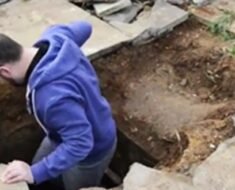In the realm of opinions, everyone’s got one, and some folks are determined to make theirs heard, whether the audience is small or large.
The internet provides a platform for anyone to share their thoughts with the world, and it’s no secret that the more unconventional the viewpoint, the more attention it tends to attract.
A recent case highlights this phenomenon, with an expert stirring the pot by suggesting that parents should seek their baby’s permission before changing a diaper.
In today’s landscape, where discussions about consent are prevalent and complex, navigating such territory can be tricky. However, for many parents, the idea of asking a baby for consent before tackling a dirty diaper seems impractical.
Let’s face it: most parents don’t exactly relish the task of changing diapers, but they recognize its necessity for their child’s well-being. Adding another step to the process, such as seeking permission, might seem excessive.
The advocate behind this idea is Deanne Carson, who identifies as a “sexuality educator, speaker, and author.” Her unconventional advice has sparked significant debate and attention.
Carson shared her insights on ABC in 2018, noting that while this practice is typically aimed at older children, it’s crucial to introduce the concept of consent from a young age.
She acknowledges that babies may not be able to give verbal consent but suggests that they can communicate nonverbally through eye contact and other cues.
Her argument revolves around fostering a culture of consent within the family unit, proposing that parents should ask if it’s alright to change a diaper before proceeding.
Carson elaborates on the process, emphasizing the importance of creating anticipation and watching for nonverbal signals to facilitate deeper communication between parents and toddlers.
Perhaps the most intriguing aspect is the response from reporters, who not only vocalized their opinions but also pondered what would happen if the baby declined.






